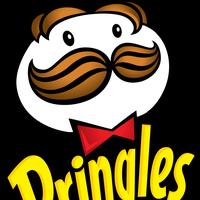Capitolo 2 - Al Bar
||In de bar
Kapitel 2 - In der Bar
Chapter 2 - At the Bar
Capítulo 2 - En el bar
Chapitre 2 - Au bar
第2章 バーにて
Hoofdstuk 2 - Aan de bar
Rozdział 2 - W barze
Capítulo 2 - No bar
Глава 2 - В баре
第2章-在酒吧
第2章-在酒吧
Marta, Tony e David bevono qualcosa in un bar di Swansea.
|||||something|||||
||||drinken||||||
Martha, Tony and David have a drink in a Swansea bar.
Marta beve una birra e gli altri un'aranciata.
|||||||an orange soda
|||bier||||een sinaasappeldrankje
Marta drinks a beer and the others an orange soda.
- Ehi!
Hey
Hé!
- Hey!
Quella è la mia birra!
Das ist mein Bier!
That's my beer!
- dice Marta.
- says Marta.
- Scusa!
Sorry!
- Sorry!
Dov'è la mia aranciata?
Waar is|||sinaasappeldrankje
Where's my orange soda?
- chiede David.
- asks David.
- È lì, in mezzo ai tuoi libri.
|||middle||your|
- Sie ist da, in der Mitte Ihrer Bücher.
- It's there, among your books.
I tre amici aspettano Adam.
|||they wait|
|||wachten op|Adam
The three friends wait for Adam.
Lui viaggia spesso in Italia e vogliono chiedergli alcuni consigli sul viaggio.
||often|||||ask him|some|advice||
|reist|vaak|||||hem vragen om||adviezen||
||frequentemente|||||||dicas||
He often travels to Italy and they want to ask him for some travel advice.
Adam entra nel bar e vede i tre amici.
Adam||||||||
|komt binnen in||||ziet|||
Adam enters the bar and sees the three friends.
- Ciao!
Come va?
how|
How are you?
- dice Adam.
- says Adam.
- Ciao, Adam.
- Hi, Adam.
Molto bene - dice David, il linguista.
- Allora, che cosa volete sapere?
||thing|you want|to know
|||willen jullie weten|weten
- So, what do you want to know?
L'opinione di Adam è molto importante per i tre amici e il loro viaggio.
the opinion|||||||||||||
De mening|||||||||||||
Adam's opinion is very important to the three friends and their journey.
Marta chiede:
- Piove molto in Italia?
it rains|||
Het regent|||
- Does it rain a lot in Italy?
- Piove molto?
- Is it raining a lot?
No!
Solo al nord.
||Noorden
Only in the north.
L'Italia è molto soleggiata e in estate fa molto caldo, specialmente al sud.
|||sunny|||||||||south
|||zonnig|||zomer|||heet|vooral||zuiden
|||ensolarada|||||||||
Italy is very sunny and very hot in summer, especially in the south.
Ora è Tony, l'archeologo, a chiedere:
now|||||
Now it's Tony, the archaeologist, who asks:
- Quali siti turistici possiamo visitare in Italia?
|sites|tourist||||
Welke||toeristische plekken|kunnen we|||
- What tourist sites can we visit in Italy?
- Ci sono tantissimi siti da visitare!
||very many|||
- There are tons of sites to visit!
Molte cattedrali, tanti monumenti, tante spiagge e montagne.
|cathedrals||||beaches||
|kathedralen||monumenten||stranden||bergen
Many cathedrals, many monuments, many beaches and mountains.
Inoltre, l'Italia ha tantissima storia.
further|||a lot of|
Bovendien|||heel veel|
Also, Italy has a lot of history.
David ha un interesse per le lingue e chiede:
|||interest|||||
|||interesse|||||
David has an interest in languages and asks:
- Che ne pensi delle diverse lingue in Italia, dei suoi dialetti?
|what|you think||||||of the||
|ervan|denk je||||||||
- What do you think of the different languages in Italy, of its dialects?
- Alcuni dialetti sono facili da capire se sai l'italiano, ma altri sono incomprensibili.
|||||||know|||||incomprehensible
||||||||||||onbegrijpelijk
- Some dialects are easy to understand if you know Italian, but others are incomprehensible.
Sono delle lingue molto diverse dall'italiano.
|some|languages|||from Italian
|||||van het Italiaans
They are very different languages from Italian.
L'Italia ha 20 regioni e ogni regione ha un proprio dialetto.
||||each||||own|dialect
|||||regio|||eigen|dialect
Italy has 20 regions and each region has its own dialect.
A volte ci sono delle differenze di dialetti da città a città.
|||||differences||||||
|||||verschillen||||stad||
Sometimes there are differences in dialects from city to city.
Sono molto interessanti da studiare!
They are very interesting to study!
I tre amici e Adam chiacchierano ancora per un po' e alla fine Adam li saluta e se ne va.
|||||chat||||||||||he greets||he|he|go
|||||praten|||||||eindelijk|||neemt afscheid van||||
The three friends and Adam chat for a while longer and finally Adam says goodbye and leaves.
- Che ne pensate?
|of it|you think
||Wat denken jullie?
- What do you think?
- chiede Marta.
David è molto emozionato perché ama le lingue.
|||excited||||
|||||houdt van||
David is very excited because he loves languages.
- Andiamo la settimana prossima!
|||volgende
- Let's go next week!
Anche Tony risponde con entusiasmo:
also||||enthusiasm
||||enthousiasme
Tony also responds enthusiastically:
- Sì, anche i siti culturali e turistici sembrano molto interessanti.
|also|the||cultural|||they seem||
||||culturele|||lijken||
- Yes, cultural and tourist sites also look very interesting.
Possiamo andare la prossima settimana.
We can go next week.
Sono d'accordo con David.
|Ik ben het eens.||
I agree with David.
Poi lui vuole studiare i dialetti italiani.
||||||Italiaanse dialecten
Then he wants to study the Italian dialects.
Infine, Marta dice:
Finally, Marta says:
- Per me va bene!
- It is fine for me!
Andiamo!
Here we go!

